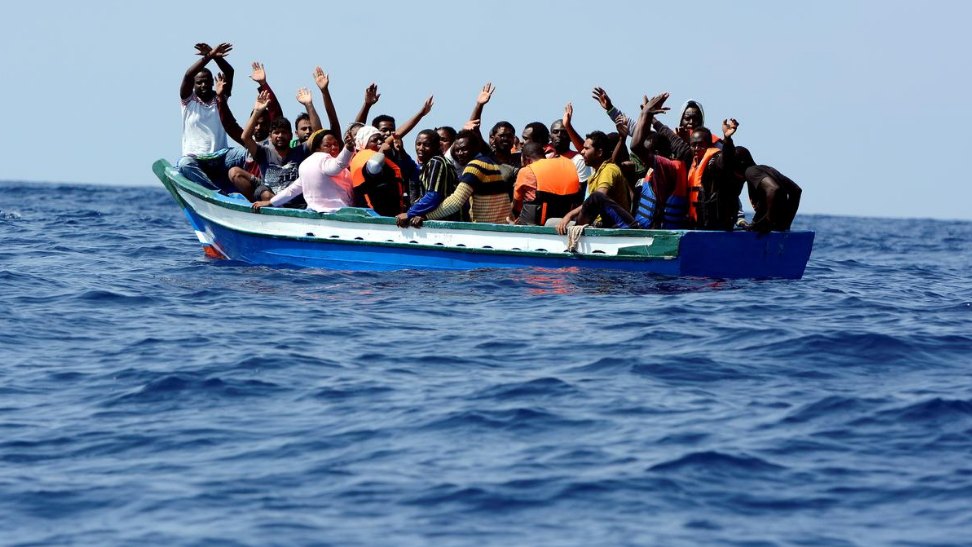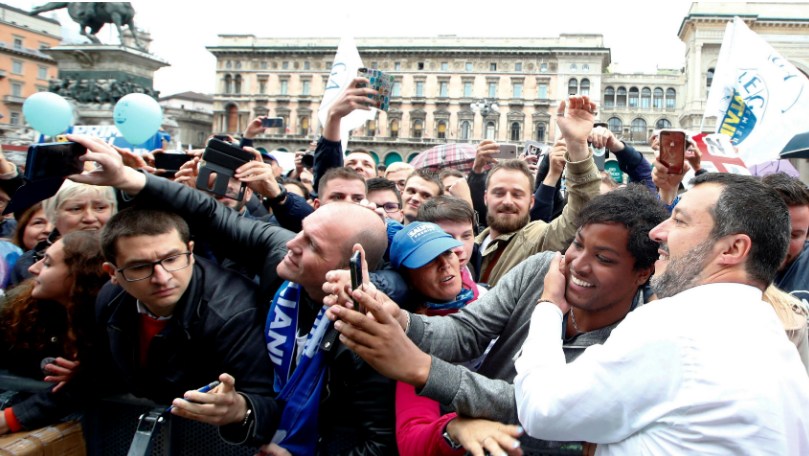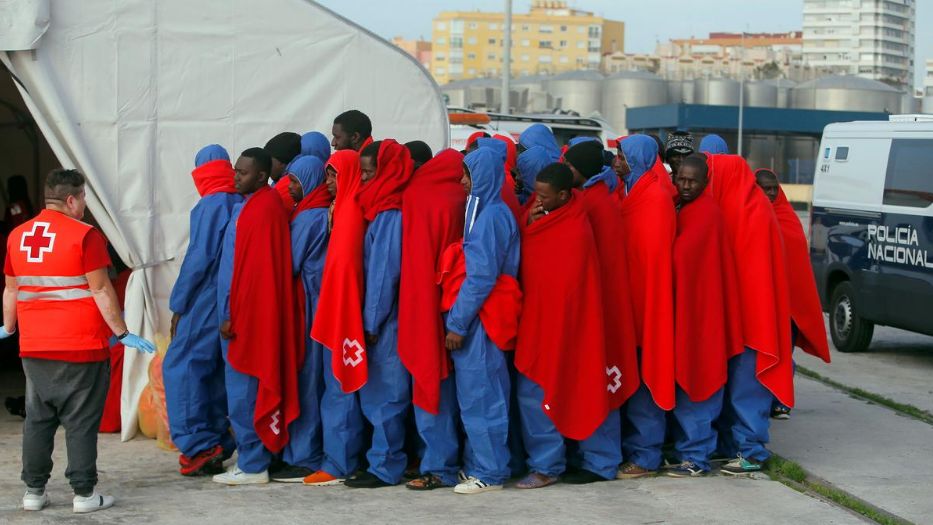
Europe
14:56, 20-May-2019
How will the migrant crisis affect EU elections?
By Nadeem Gill

Elections to the European Parliament are taking place from May 23 to 26 in the member states, and the nationalist politicians are trying to capitalize on the most divisive EU issue – migration.
Perhaps it is no surprise that the issue resonates even though the number of migrants crossing into Europe has come down.
Anti-immigration leaders are still quoting the problem to gain support.
Hungary's Prime Minister Viktor Orban said on the sidelines of an EU summit in Romania earlier this month that Europe will be in a position to defend itself if leaders opposing immigration are elected.
Rise of nationalism
The migrant crisis, which saw an influx of migrants from Africa and the Middle East, unfolded in 2015, leaving European politics fragmented and triggering the rise of nationalism in many EU countries.

Italy's Deputy Prime Minister Matteo Salvini poses for a selfie with supporters during a major rally of European nationalist and far-right parties ahead of EU parliamentary elections in Milan, Italy, May 18, 2019. /Reuters Photo
Italy's Deputy Prime Minister Matteo Salvini poses for a selfie with supporters during a major rally of European nationalist and far-right parties ahead of EU parliamentary elections in Milan, Italy, May 18, 2019. /Reuters Photo
As the shockwaves continue to resound around the continent, populists from 11 EU states gathered in Milan, Italy to present a united front less than a week before the vote.
Italian deputy Prime Minister Matteo Salvini who led Saturday's joint rally pledged to close Europe's borders to migrants if his anti-immigrant League party wins the most votes.
These parties might differ on social and economic policies, but they share a goal of curbing immigration and preventing the spread of Islam in Europe, one of the key points that has given rise to populism in the bloc.
Far-right Alternative for Germany (AfD) capitalized on the issue and reached the parliament after winning its first seats in the 2017 elections.
In Spain, far-right Vox party shook all leaders from the mainstream parties by securing 24 seats with more than 10 percent of the votes in the April elections on the promise of deporting migrants.
The migrant crisis was seen a crucial factor to the Austrian Freedom Party's (FPÖ) success in 2017, which came up as the only far-right party in power in Western Europe after joining a coalition as a junior partner with conservative Chancellor Sebastian Kurz.
The anti-immigration Sweden Democrats (SD) won 18 percent of the vote in the 2018 general election while in the same year, Hungary's Orban won a third term with a landslide victory in an immigration dominated election.
The far-right Italian deputy prime minister was elected into government last summer.
Where does the crisis stand?
The migrant crisis has eased as the number of new asylum applications across the EU have reduced by half in three years, said a Reuters report last week.

Migrants intercepted in the Mediterranean after disembarking from a rescue boat at the port of Malaga, southern Spain, November 13, 2018, Reuters Photo
Migrants intercepted in the Mediterranean after disembarking from a rescue boat at the port of Malaga, southern Spain, November 13, 2018, Reuters Photo
This may be a reason that opponents say populists are grossly exaggerating the problem, but a poll published last Monday showed that the issue still resonates.
According to a YouGov poll, carried out in eight EU countries, immigration is the top concern among voters, followed by climate change.
The survey revealed just three percent of respondents believed "all is well" on the migration front. Only 14 percent thought the EU had done an excellent job handling the emergency.
The migrant crisis may be drying up, but it may still put nationalist and eurosceptic parties in a strong position as they may secure their best result in the May 23-26 EU vote.
(Cover: Migrants wait to be rescued by SOS Mediterranee and Doctors Without Borders during a search and rescue operation with the MV Aquarius rescue ship in the Mediterranean off the Libyan Coast, August 10, 2018. Reuters Photo)

SITEMAP
Copyright © 2018 CGTN. Beijing ICP prepared NO.16065310-3
Copyright © 2018 CGTN. Beijing ICP prepared NO.16065310-3